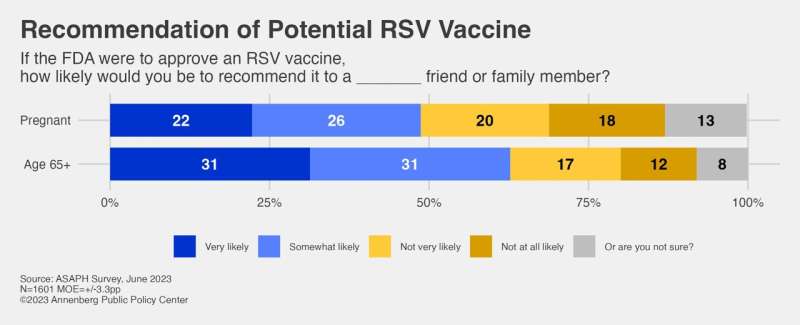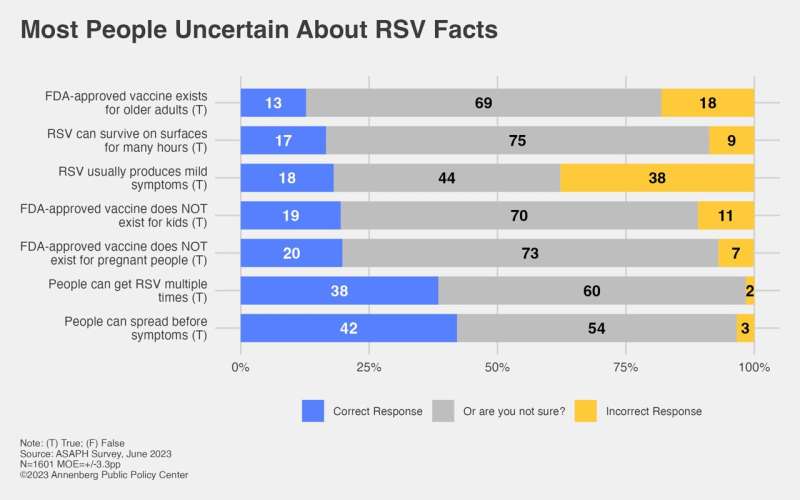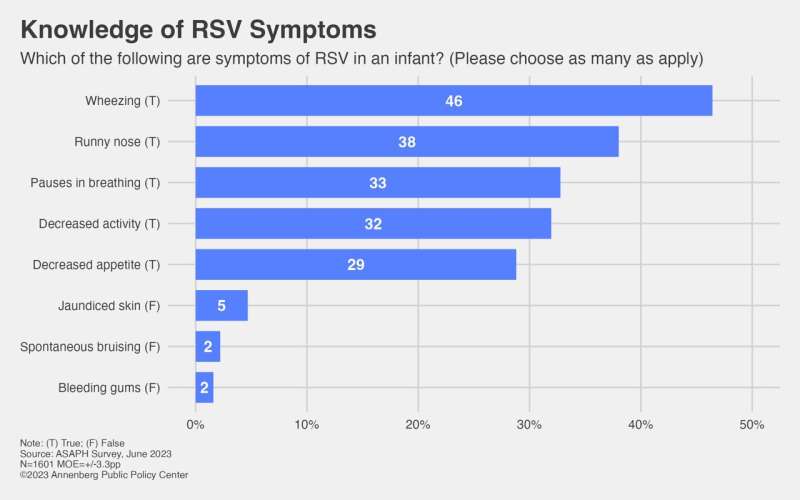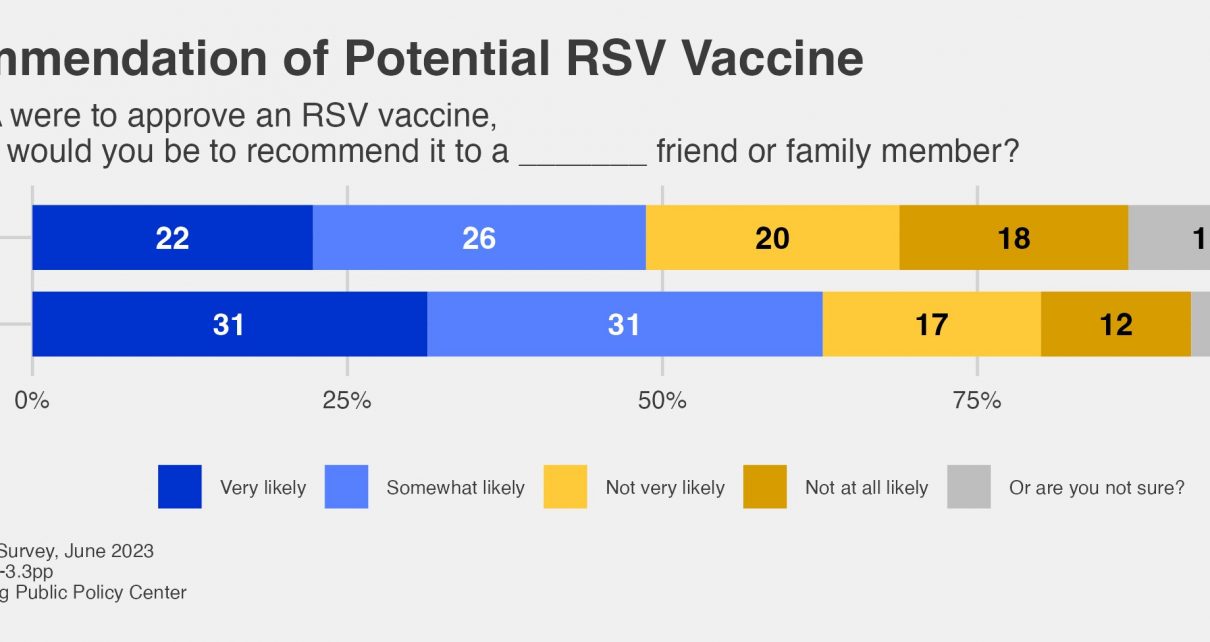
APPC’s Annenberg Science and Public Health Knowledge survey

Underestimating the prevalence of RSV—but awareness of potential severity

Great uncertainty about RSV
- Symptoms: Less than 1 in 5 people (18%) know it’s more accurate to say that RSV usually produces mild, cold-like symptoms than serious difficulties in breathing (38%). And 44% say they are not sure.
- Persistence: Less than 1 in 5 people (17%) know it’s more accurate to say that RSV is able to survive for many hours on hard surfaces such as table or crib rails than to say RSV can’t survive for many hours on these hard surfaces (9%). Most people (75%) say they are not sure.
- Recurrence: Less than 4 in 10 people (38%) know it’s more accurate to say that once a person contracts RSV, they can get it again. Only 2% incorrectly believe it’s more accurate to say that you can’t get RSV again, but 60% say they are not sure.
- Spreading the virus: Just over 4 in 10 people (42%) know it’s more accurate to say it is possible to have and spread RSV before showing symptoms than to say it is not possible (3%). But over half of those surveyed (54%) are not sure.
- Vaccine for older adults: Just 13% knew at the time the survey was fielded about the existence of an FDA-approved vaccine against RSV for older adults, while 18% said there was not an FDA-approved vaccine. Nearly 7 in 10 people (69%) said they were not sure. (The FDA approved one RSV vaccine for adults 60 and older on May 3, 2023, and the second one on May 31, the beginning of the survey period. A CDC committee of experts known as ACIP is meeting today on whether the CDC should recommend those vaccines and, if so, for what ages.)
- Vaccine for pregnant people: Just 1 in 5 people (20%) knew when the survey was fielded that there was not an FDA-approved vaccine against RSV for those who are pregnant to benefit their newborns, while 7% thought there was one. Nearly three-quarters of those surveyed (73%) were not sure. “However,” Jamieson noted, “since an FDA advisory panel had recommended approval at that point, we would expect a high level of uncertainty about whether or not an FDA-approved vaccine existed.”
- Vaccine for infants and children: About 1 in 5 people (19%) know there is currently not an FDA-approved vaccine against RSV for infants and children in the United States, while 11% say incorrectly that there is one and 70% are not sure.
Fewer than half recognize the symptoms of RSV
- Wheezing: 46% know this is a symptom
- Runny nose: 38% know this is a symptom
- Pauses in breathing: 33% know this is a symptom
- Decreased activity: 32% know this is a symptom
- Decreased appetite: 29% know this is a symptom
- Jaundiced skin: 5% incorrectly say this is a symptom of RSV
- Spontaneous bruising: 2% incorrectly say this is a symptom of RSV
- Bleeding gums: 2% incorrectly say this is a symptom of RSV.
Source: Read Full Article



